Janine Zacharia, a former foreign correspondent for The Post, is a visiting lecturer in Stanford University’s Department of Communication.
Riyadh’s Criminal Court is scheduled to announce a verdict Wednesday in a trial of two of Saudi Arabia’s leading human rights activists. Mohammad Fahad al-Qahtani and Abdullah al-Hamid face 11 criminal charges, including tarnishing the reputation of the state and providing false information to international organizations about thousands of Saudis who have been arbitrarily detained.
The six-month trial has received scant media attention — Saudi police detained a Sky News crew that tried to report on the final court hearing on Dec. 29.
Washington has been silent. With the Middle East in turmoil and its other bedrock Arab ally, Hosni Mubarak, gone, the United States has become ever more reliant on Saudi Arabia to help restore regional stability.
The Obama administration wants Saudi Arabia to keep supplying arms to Syrian rebels to force the ouster of Bashar al-Assad and to continue pumping oil at levels that keep gasoline prices low. In return, the United States says little or nothing publicly about human rights abuses in the kingdom, apart from its annual State Department human rights report. Similarly, U.S. officials avoid discussing Saudi Arabia’s role in helping neighboring Bahrain crush dissent.
In March 2011, I interviewed Qahtani, an economics professor, in Riyadh as part of a reporting trip for The Post, during which I sought to assess the Saudi regime’s vulnerability to the revolutionary tide that was sweeping the Middle East. Saudi King Abdullah was secure. Even his top critics, such as Qahtani, wanted him to remain monarch — just to rule more benevolently.
It was 8 a.m. when we met. Still, his cellphone rang every few minutes. Qahtani had just publicized that he was compiling a list of Saudis who had been detained, some for years, without any contact with the outside world. Women whose sons or fathers or husbands had disappeared into Saudi custody were calling for help.
It seemed extraordinary to me at the time that Qahtani was not in prison. That he was able to operate so freely appeared to indicate a loosening of the regime’s tight grip on society. Next I went to Jiddah, where I saw other potential signs of liberalization. There, I reported on young men and women who openly mingled and even gently mocked the regime in public at a vibrant bookstore cafe.
Whatever slight opening I perceived, however, was either misread or short-lived. Qahtani’s trial is just one case in point. The Saudis have since shut down the Bridges bookstore, telling locals it was because it sold books and hosted talks that violated the teachings of Islam, allowed for the mixing of the sexes and was open during Muslim prayer times.
As we spoke via Skype last fall, Qahtani rattled off a list of writers and activists who had been detained in the weeks prior. Twitter and similar social-networking sites are alive and well in Saudi Arabia. But anyone who posts anything the regime deems offensive risks being arrested.
That happened last month to Turki al-Hamad, a prominent Saudi writer whose tweets the Saudi government deemed offensive to Islam. Amnesty International is protesting the Saudi government’s decision last month to prosecute a 25-year-old blogger, Raif Badawi, for apostasy, a charge that carries the death penalty. The charges relate to online articles he wrote, including one about Valentine’s Day, a holiday whose celebration is prohibited in Saudi Arabia. More examples abound.
When I told Qahtani that I didn’t foresee President Obama speaking out on his case because of more pressing national U.S. security concerns, he acknowledged that was likely true.
“We take it upon ourselves, to be honest with you,” he said. “It’s our own fight.”
Qahtani told me a few days ago that he expects to be sent to prison for roughly three years — a sentence the Saudi regime will deem “palatable to international human rights organizations.”
“The Saudi regime doesn’t care about its local subjects,” he said. “This is my expectation. I hope I am wrong on that one.”
Saudi Arabia’s human rights record has always been appalling. The chaotic outcome of the Arab revolutions has, regrettably, made the United States and other Western powers even more reluctant to pressure Saudi leaders to promote democratic reforms.
With good men facing jail, now would be the right time for Western governments — and Washington in particular — to set aside those concerns and do something to try to reverse this trend of Saudi Arabia imprisoning writers and activists.
That Saudi Arabia allows so much freedom on its pan-Arab Al Arabiya satellite channel and Al Hayat newspaper while continuing to imprison writers and activists at home is especially hypocritical and abhorrent. It’s a point that Obama should make to the Saudis, to at least try to prevent Qahtani and his colleague from being sent to jail and silenced.

